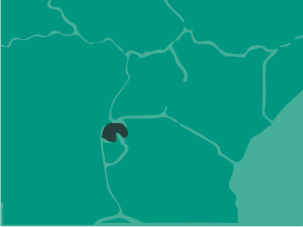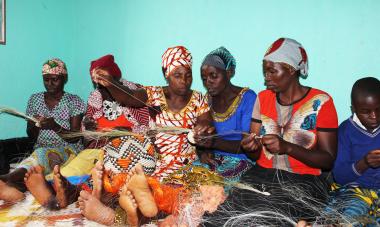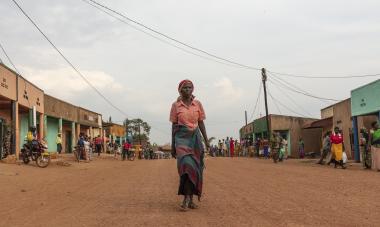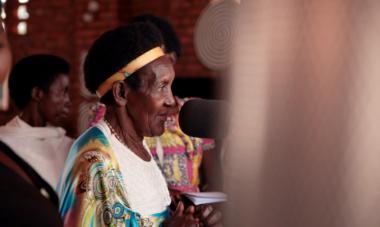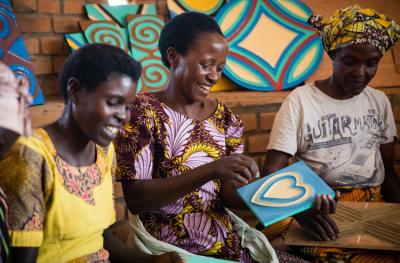
In the aftermath of the genocide against the Tutsi in 1994, the lives of over one million people lost their lives over a period of 100 days. An estimated 100,000-250,000 women were raped during the three months of genocide in Rwanda.
Women accounted for around 70 per cent of the population following the genocide, which led to a massive shift in the country’s workforce.
Today, Rwandan women hold 64 per cent of governing roles. The country is making strong progress toward achieving gender equality:
- Marital rape was outlawed in 2009.
- According to a UN Women report, as of February 2021, 61.3% of seats in parliament were held by women.
- 91.7 per cent of Rwanda's legal frameworks advance gender equality, with a focus on violence against women.
However, physical and sexual violence against women is still high in the country.
- 41.5 per cent of women experienced intimate partner violence in their lifetime, including sexual and physical violence.
Our Work in Rwanda
Since 1997, Women for Women International has trained women to advocate for their rights, and to use their economic and social power to change the status quo in their communities.
In 2021, local leadership in Rwanda led the process of establishing Women for Women Rwanda (WfW-Rwanda) as an independent sister organization.
Through WfW-Rwanda, our Stronger Women, Stronger Nation (SWSN) program supports women by providing peer support and training which enables them to generate income, save money for the future, and achieving economic independence to support their families. SWSN participants also receive the training and resources to understand and defend their rights and learn to influence decisions in their homes and communities. Through the program, Rwandan women are embracing their confidence and skills to transform their lives, families, and communities.
After women complete our year-long program, we continue to support their journey to empowerment and self-sufficiency through advanced training. Tailored to the context and the needs of our graduates, our graduate support helps foster continued opportunities for women after they complete the Stronger Women, Stronger Nations program. We know that women may need additional tools to overcome the challenges they face, especially in starting and growing their businesses, after graduation. By connecting women to financial services, advanced business and vocational training, and support networks, we increase opportunities to grow their businesses and unlock their full potential.
“We bring women together in a space that is a peaceful so they can form meaningful friendships as they build skills, and they make their own hope.”
-Antoinette, Former CO Director of Rwanda
Since 2013, the Urugo Women’s Opportunity Center (WOC) has served as a resource to enhance women’s entrepreneurship. Contributing to the Rwandan government’s National Strategy for Transformation (NST 1) overreaching objective of the Economic Transformation pillar of accelerating inclusive economic growth and development founded on the Private Sector, knowledge, through the Creation of decent and productive jobs for economic development and poverty reduction specifically, the WOC integrates economic transformation, rural development, and productivity in a space of learning and renewal for women in the Kayonza area and beyond. The WOC remains a hub for business, and positioning WfW-Rwanda graduates for success in their business ventures.
To further our mission of ending gender inequality, WfW-Rwanda also works with men in the community through our Men’s Engagement Program (MEP). Through the program, local leadership uses a “training the trainer” approach to teach men about gender equality, women’s rights and how to influence other men in their communities to enable an environment for women to reach their full potential and exercise their rights. In2023, Women for Women Rwanda has officially disseminated a Men Engagement draft tool kits (so far informed by the midline results and to be supplemented by the endline in the 2nd half of 2023) that will guide this work in the scale up.
The Impact
-
Since the program began, a total of 80,348 women have been reached.
-
399 women graduated from SWSN Program in 2023.
-
Since inception, our local team has reached 920 men through our Men’s Engagement Program.
“With hope, women can see a vision in which they can make decisions on a national level. Women realize they can be leaders. That’s important to building lasting peace.”
-Antoinette
